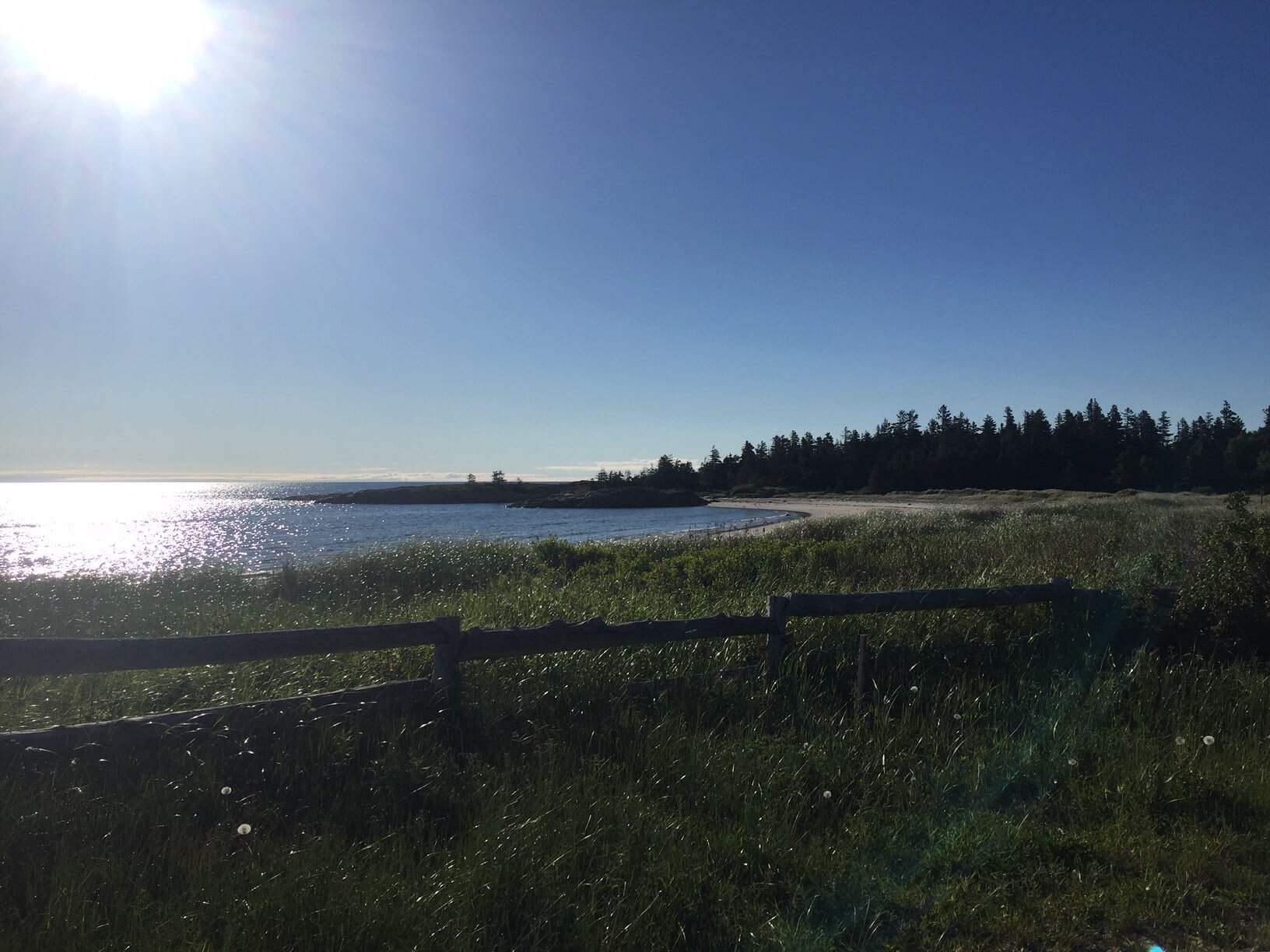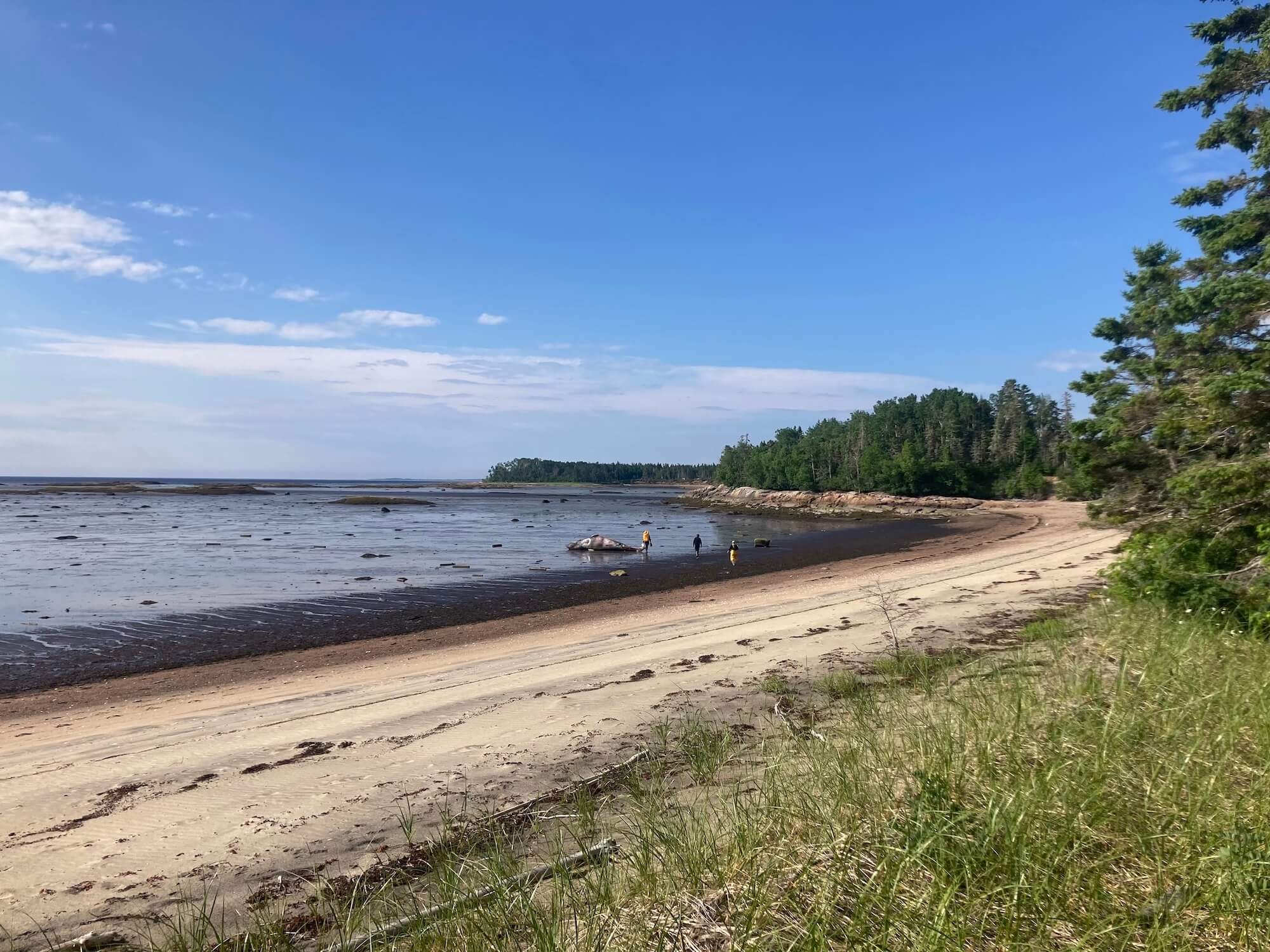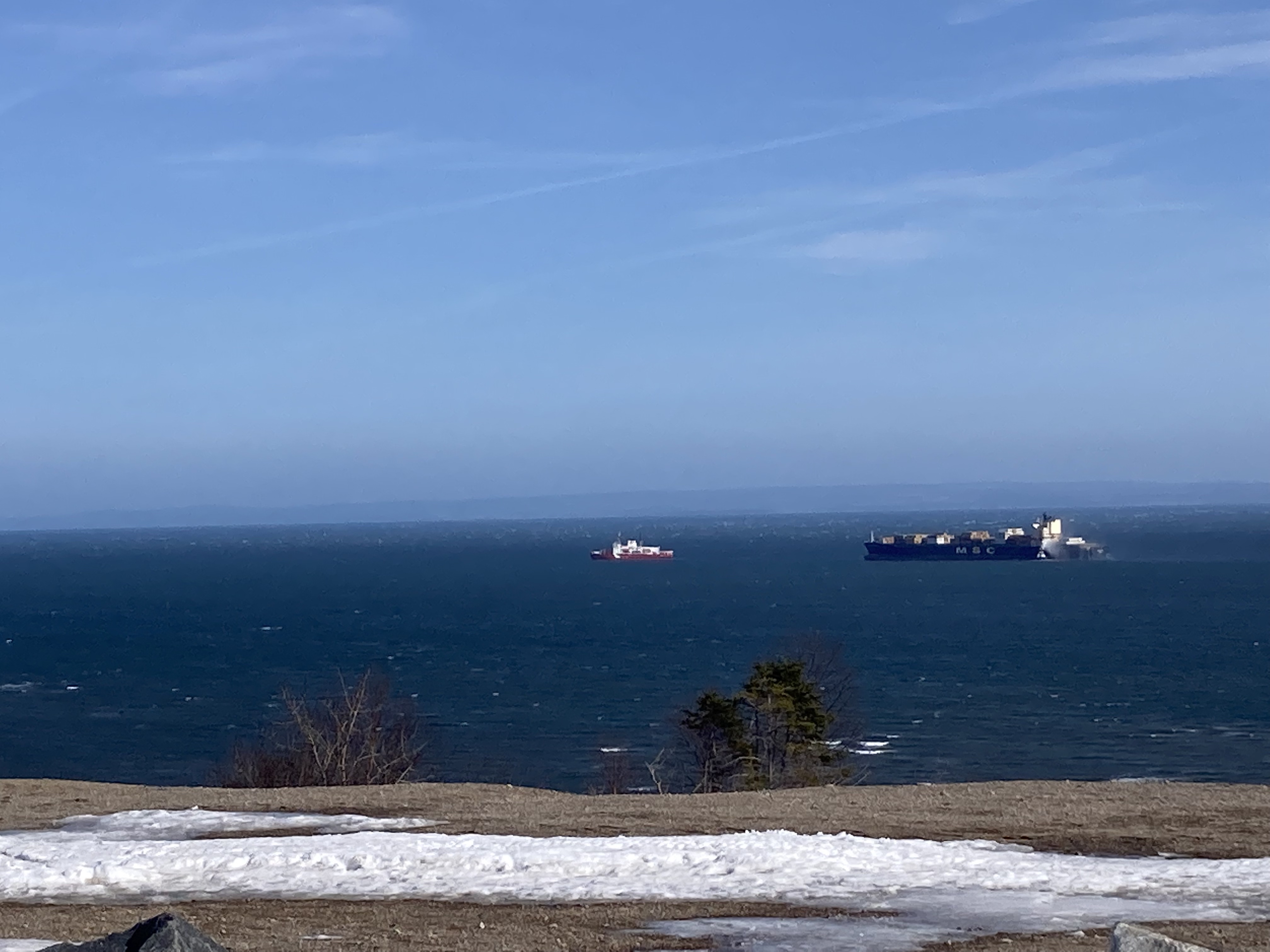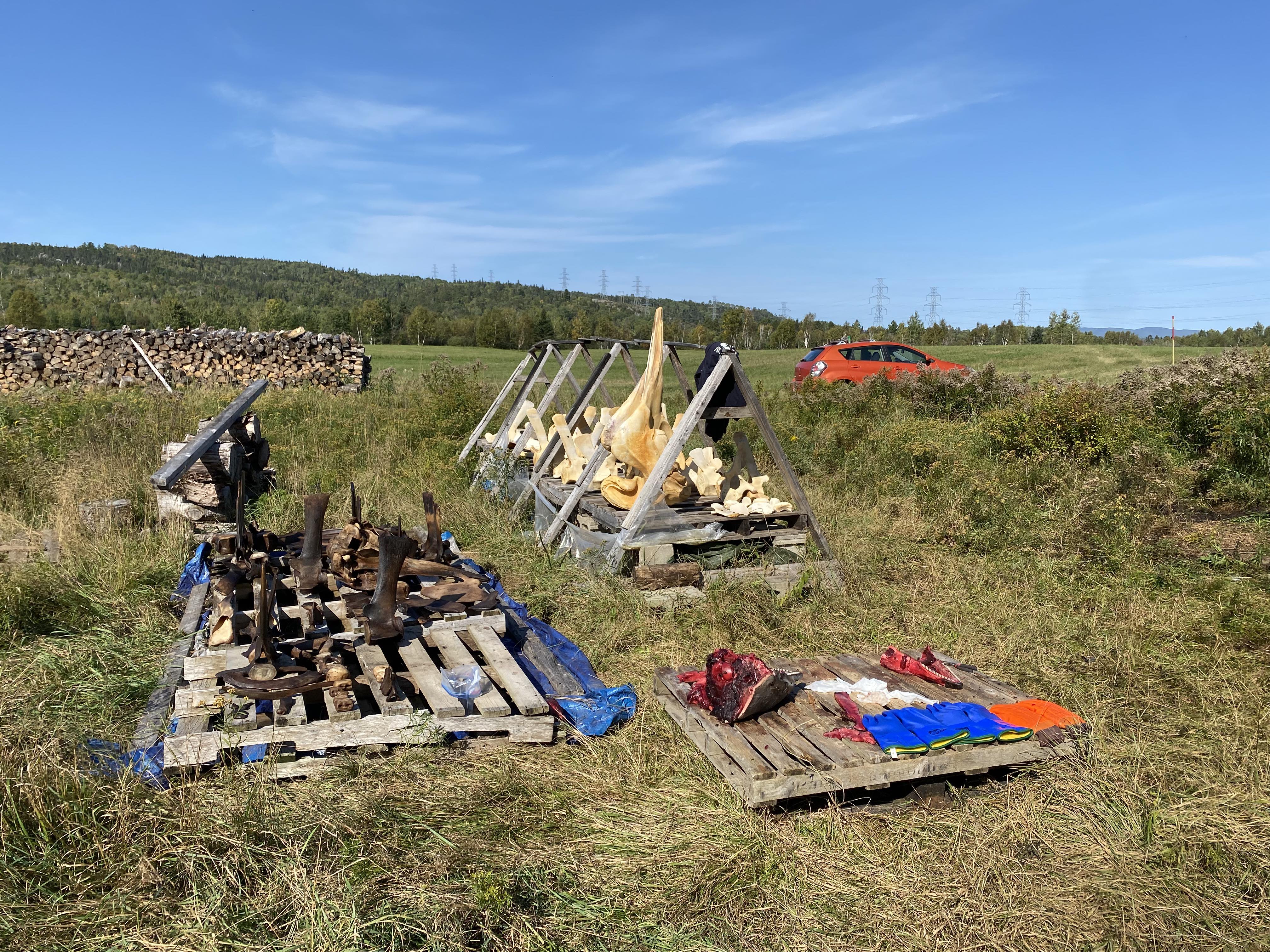On the evening of June 20, 2022, the Quebec Marine Mammal Emergency Response Network (QMMERN) gets wind that a harbour porpoise carcass has been found stranded near Godbout. Being still fresh, it must be quickly recovered so that a necropsy can be carried out to understand the cause(s) of mortality. Two seal carcasses will also be recovered along the way, as they must be analyzed without delay. As a matter of fact, we want to check whether avian flu may have been transmitted to the seals by seabirds.
Thanks to a fortunate coincidence, I was designated from CIMM’s team of naturalists to lend a hand to the QMMERN crew for this mission. The following dawn marked the start of what would be for me an extraordinary day!
Longest day of the year
4 a.m. – Departure from Tadoussac
It’s still dark outside, but we’re already on our way to retrieve the stranded harbour porpoise.We need to arrive at our destination before high tide, otherwise there’s a risk the carcass might get washed away. We try to remain optimistic as the sun slowly begins to rise: Let’s hope the carcass is still there when we arrive!
7:00 a.m. – Arrival at Islets-Caribou
As soon as we get there, we take the orange stretcher out of the vehicle and put on our gloves before heading to the beach. We don’t know exactly where the carcass is located; to find it, we only have the description provided by a QMMERN volunteer who lives in the region. It is with this information that we manage to find the beached porpoise.We got there in time!
Once the porpoise is placed on the stretcher, we carry it to the car. Now I understand why it took four of us to move the carcass! Walking on the rugged, rocky terrain of Islets-Caribou beach is quite perilous, especially considering that a harbour porpoise, despite being relatively small, is still quite heavy!
Once we return to our vehicle, the carcass is placed in a bag purposefully designed for its conservation. Now it’s time to leave for the second mission of the day: to recover a harbour seal carcass stranded in Pointe-Lebel.
Arrivée au véhicule, la carcasse est placée dans un sac spécialement conçu pour sa conservation. C’est ensuite le moment de partir pour la deuxième mission de la journée : récupérer une carcasse de phoque commun échouée à Pointe-Lebel.
In search of stranded seals
10 a.m. – Arrival at Pointe-Lebel
The carcass of the harbour seal pup at Pointe-Lebel is not hard to find. The individual – attached with a rope to a chunk of wood by a volunteer so that it wouldn’t get washed back into the water – is still in very good condition. We therefore easily recover the carcass and place this one in a bag as well.
12 noon – Where is the second seal?
The last seal carcass is the most difficult one to find. After having unsuccessfully combed the beach in Longue-Rive for quite some time, we finally cross paths with an individual who guides us to the carcass. However, the advanced state of decomposition of the carcass does not lend itself to sample taking.We therefore decide to leave the animal where it is. A red tag is attached to its tail to indicate that the carcass has already been handled by the QMMERN. This will prevent the same carcass from being counted twice, even if it is carried away by the currents and found again at another location. Nature will take care of the rest.
At the end of the day, our team returns to Tadoussac with two carcasses on board. The animals are stored in freezers and will later be transported to the Université de Montréal’s Faculty of Veterinary Medicine in Saint-Hyacinthe, where they will undergo necropsies.
A demanding but necessary job
During my day with the QMMERN team, I realized the importance of the work being performed by this organization. Although this team first and foremost travels to the field to deal with the carcasses of stranded marine mammals, it also conducts outreach activities with the general public.It is therefore a wonderful opportunity to raise public awareness of the issues faced by marine mammals!







